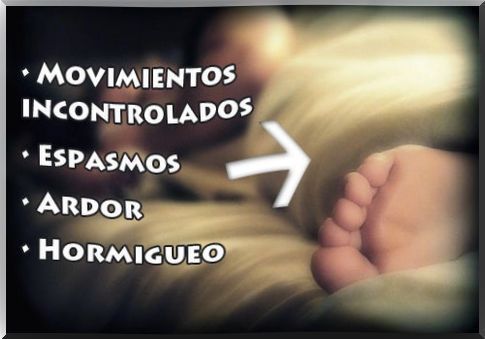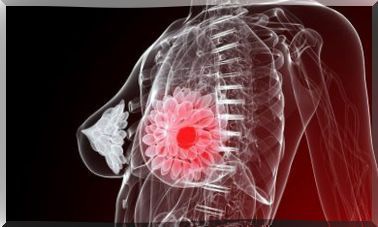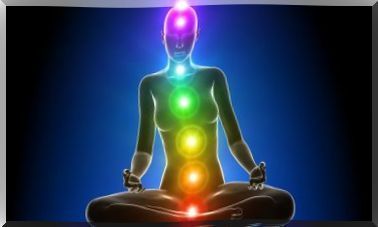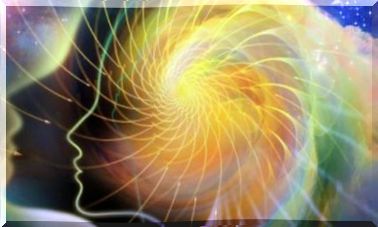Discover The Most Common Sleep Disorders
Many times we wake up in the morning tired without really knowing why. We have the feeling that we have slept, but nevertheless, we have not got a real rest. Why is this? Find out if you suffer from any of these sleep disorders.
Most common sleep disorders
1. Restless leg syndrome

It is one of the most common types of sleep disorders. It is possible that you know someone or even that your partner or you suffer from it, since it affects men and women equally.
But, what is it about? They are people who, when they are asleep, suddenly begin to move their legs as if they were walking. They give sudden blows that can either wake them up or make them wake up very tired from this unforeseen exertion.
During the day you suffer from annoying tingling and heaviness in your legs. And it is not pleasant, because it is accompanied by an annoying sensation in the legs, as if there were insects or as if something unpleasant was squeezing our lower limbs.
Normally, the restless legs syndrome is treatable and are sometimes accompanied with iron supplements.
2. Sleepwalking

Many people suffer from sleepwalking. It is a parasomnia where motor activities are not inhibited during sleep, on the contrary. We can get up, walk, wander and even talk while we are still unconscious, that is, asleep.
It happens during phases 3 or 4 of sleep, in the stage called slow sleep or slow wave sleep (SOL), where dreams have not yet appeared as they are, it is therefore an earlier phase.
According to data, almost 20% of the population suffers from it, and it is more intense at times when we experience greater stress and anxiety. Another fact to take into account is that it is hereditary, there is more than a 60% probability that one of our parents will suffer it and that, in turn, our children will inherit it.
3. Sleep apnea

Although it is not serious at first, it is a sleep disorder to consider. Sometimes those classic nocturnal snoring hide something more serious, and that is, apnea, what it really does is produce “small collapses” in our airways, the air stops leaving normally and becomes obstructed, causing us a momentary loss of oxygen.
I mean, we drown. This, at the brain level, is something to consider and that in the long term can be very negative. We will wake up tired and even with headaches, a fatigue that can be very pronounced if, for example, our apnea is serious. And do you know when it is considered serious? When those breaks occur more than 30 times in an hour. We must take it into account.
4. Narcolepsy

Narcolepsy is a serious sleep disorder that can alter our quality of life.
We can suffer it in different ways, firstly experiencing excessive drowsiness during the day forcing us to have to sleep almost anywhere. Other times, the most serious, any effort for example, can cause us an almost inevitable sleep attack, and even fainting.
They are people who cannot avoid spending a large part of the day sleeping. It can appear at any age, we can even experience a few early years with somewhat more common alterations such as just sleep. But keep in mind that despite sleeping a lot, you do not rest and patients are still very exhausted when they wake up.
During the night, they can even suffer hallucinations, situations in which they cannot differentiate dreams from reality, and even many suffer from the classic sleep paralysis, terrible moments in which, despite being aware that we are living a nightmare, we are unable to react and even to move, thus experiencing this dream in all its bloody reality.
5. Night terrors
No, they are not just nightmares. It is something more serious that, on many occasions, requires medical and psychological treatment. You may also think that it is a sleep disorder that only children suffer, but it is not like that, since it also affects many adults.
But, what is it about? These are those times when we wake up very upset after having a nightmare, we wake up with rapid breathing, tachycardia and even open our eyes screaming and punching with the clear feeling that we are being attacked.
Night terrors are also known as Eserenol Syndrome, and as we say, they cause people a lot of anxiety when it comes to going to sleep, since the experience of these experiences is very intense, both for them and for the people who live at night. their side, since they see them react with panic every time they wake up, a negative feeling that can drag on throughout the day.
Finally, if you have any of these sleep disorders on a recurring basis, do not hesitate to consult your doctor since they affect your quality of life.









